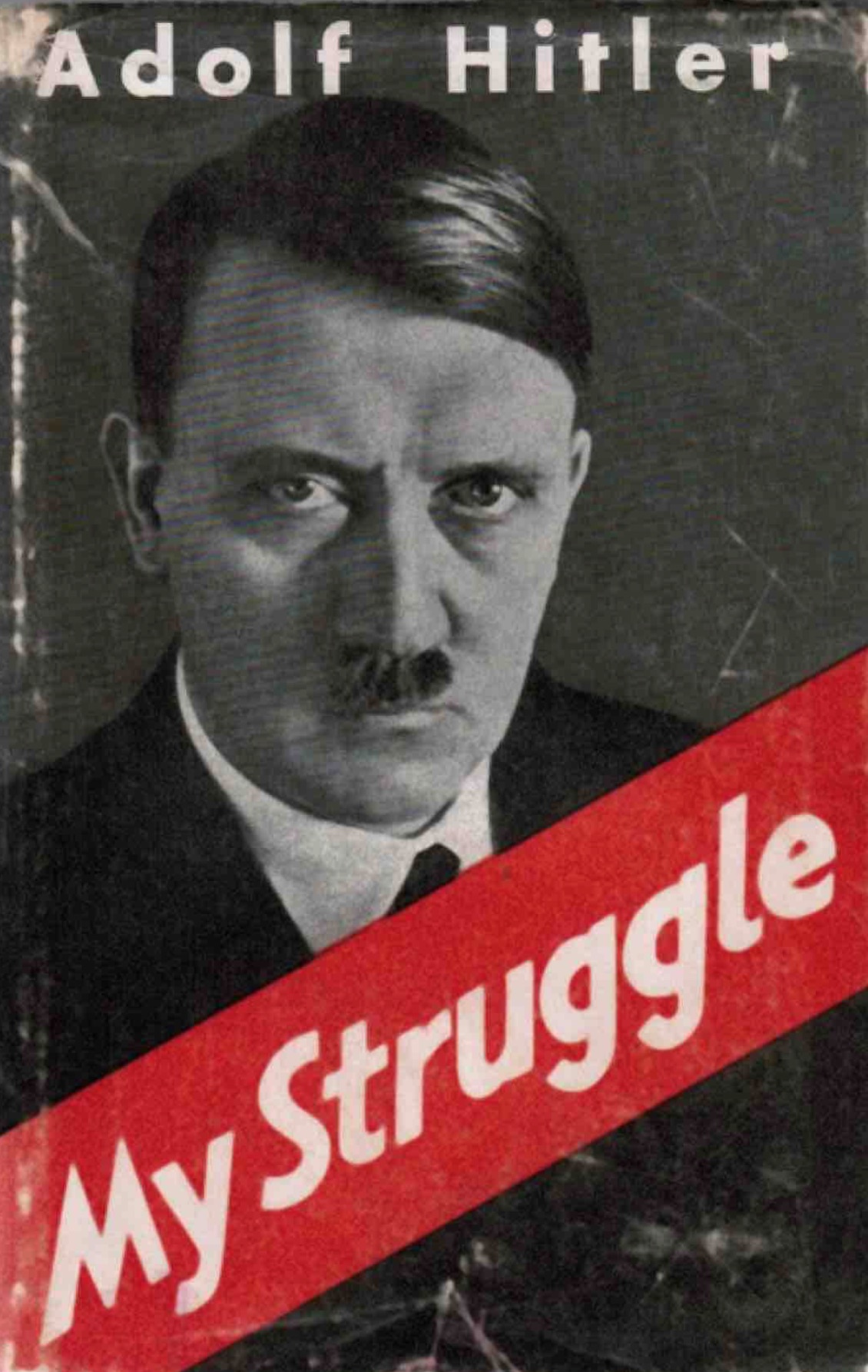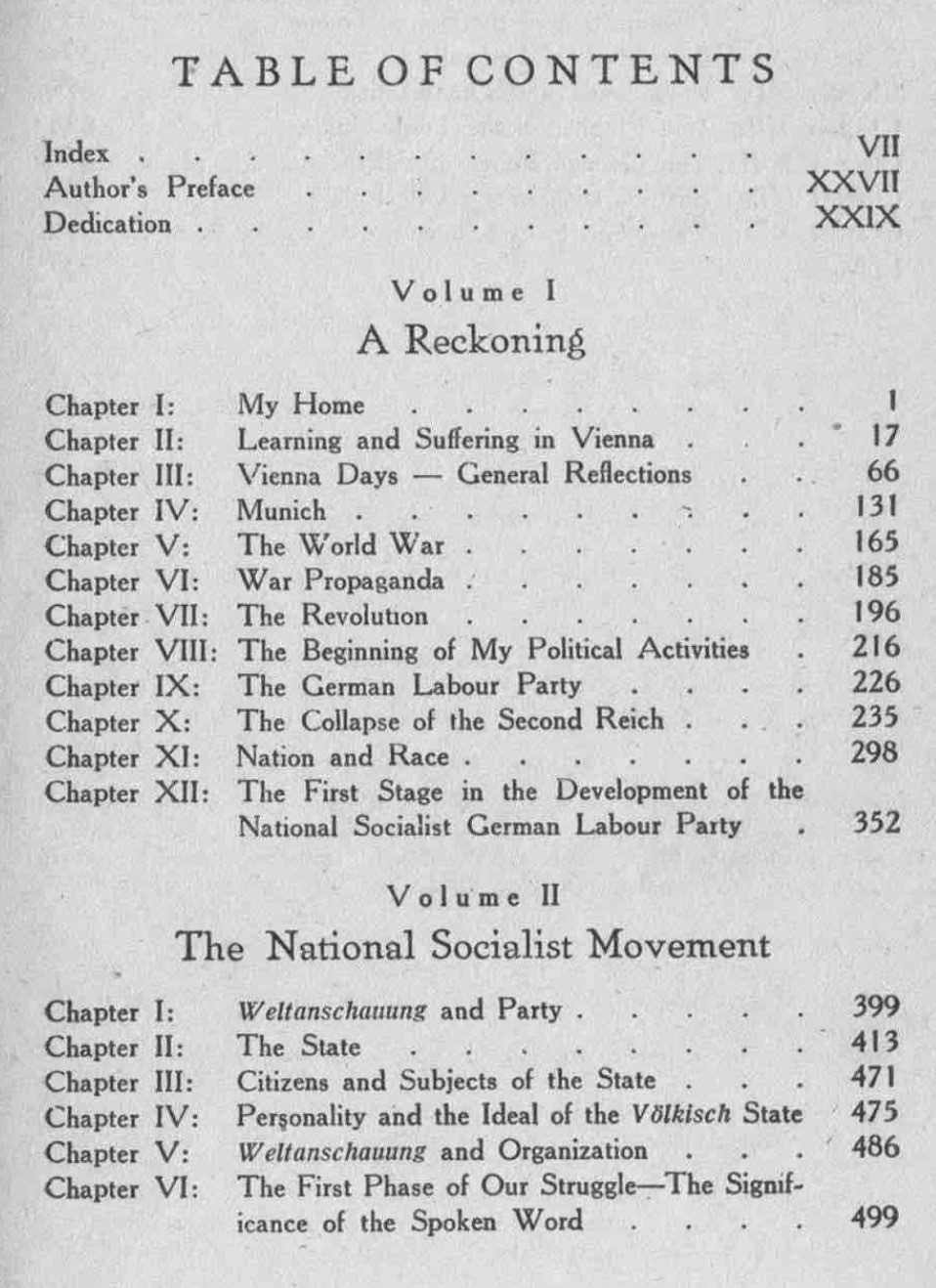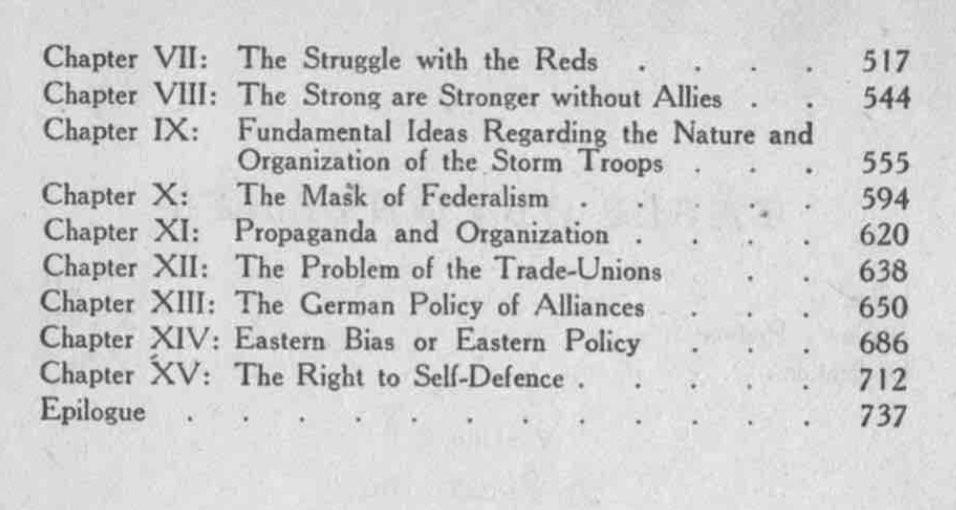Adolf Hitler
My Struggle (Mein Kampf) - Stalag Edition (1940)
The only complete and officially authorized English translation.

This is the only complete, unabridged and officially authorized English translation of Mein Kampf ever issued by the National Socialists of Germany, and is not to be confused with any other version. Translated by a now-unknown English-speaking Party member, it was printed by the Franz Eher Verlag in Berlin for the Central Press of the NSDAP in limited numbers during the years 1937 to 1944. Most copies were distributed to the camp libraries of English-speaking prisoner of war camps, and became known as the “Stalag” edition (Stalag being a contraction of the German word Stammlager or “POW camp”) because they all carried a camp library rubber stamp on the title page. Only a handful of copies survived the war, and the text contained in this edition has been taken directly, without amendment, from one of these extremely rare editions.
In 1936, the German government decided that they would sponsor their own, complete, English translation. They hired a British writer and journalist, James Murphy. There not yet having been a second world war, and the worst excesses of Nazism still in the future, Murphy was inclined to produce a favorable and sympathetic translation. Unfortunately, there was a falling out with National Socialist officials and Murphy was ‘fired’ sometime in 1938, his project incomplete. Through some obscure process, the Germans completed Murphy’s draft version on their own, and published it in the late 1930s. Today this is known as the Stalag edition. It is not to be confused with Murphy's own later edition: By 1939, four new versions had appeared. After his dismissal, Murphy returned to England and revised and completed his translation, which was published by Hurst & Blackett in 1939. This is ‘the’ Murphy translation; it is widely available on the Internet, and through various reprints.
In sharp contrast, the only authorized “Stalag” edition contains none of these complicated and unnecessarily confused constructions, and is extremely easy to read, as anyone familiar with the other versions will immediately notice. Most importantly, this only authorized edition contains the full text of the original German—and none of the deliberately-inserted racial pejoratives used in the Murphy and Mannheim versions (words that Hitler never used in the original).
This edition also includes a reproduction of the original title page of a copy of the only official English translation of Mein Kampf ever issued, complete with a Stalag camp number 357 stamp. Stalag 357 was located in Kopernikus, Poland, until September 1944, when it was moved to the old site of the former Stalag XI-D, near the town of Fallingbostel in Lower Saxony, in northwestern Germany. Its internees included British air crews and, later, British soldiers captured at the Battle of Arnhem.
About the translator: The name of the translator was never released by the Eher Verlag, and has now been permanently lost to history. An English-speaking party member, his use of British English spelling throughout would indicate that his language instruction either took place in Britain or that his instructors were British, rather than American.
Contrary to postwar propaganda, Mein Kampf does not contain a “plan for world domination” and instead consists of a short autobiography, the effect of World War I on Germany, a discussion of race and the “Jewish Question,” the constitutional and social make-up of a future German state and the early struggles of the NSDAP up to 1923.
Inner Page - Portrait and Signature of Adolf Hitler

Title Page

Contents


Compared to the version orginally on The Internet Archive, note:
- The pages have been de-skewed (straightened), and
- OCR has been performed using PDFScanner
- The text pages have been converted to black and white and book compressed in order to halve the file size using PDF Squeezer.
Downloads and Links
- Download My Struggle (Mein Kampf) - Stalag Edition (1940) by Adolf Hitler - PDF (120 MB) - 744 pages.
- Read My Struggle (Mein Kampf) - Stalag Edition on The Internet Archive and download in different formats
- Article Rethinking "Mein Kampf" by Thomas Dalton (2016)
- Web search for the book by author and title
